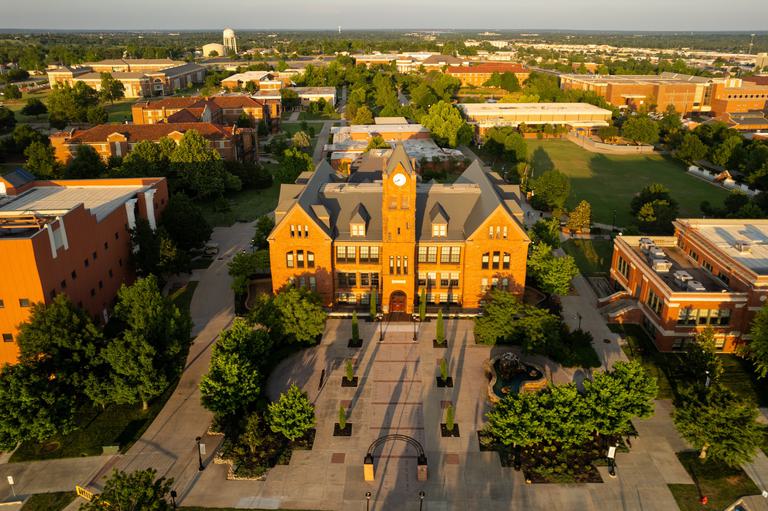
Higher Education
Ray Carter | January 28, 2025
Oklahoma regional colleges emphasize affordability
Ray Carter
Against a background in which college tuition increases have far outpaced inflation in recent decades, the overseers of several Oklahoma regional colleges are working to push back against that trend.
The Regional University System of Oklahoma (RUSO) Regents, who oversee six state universities, have launched an affordability and transparency framework to keep college affordable for Oklahoma students.
“Our universities are already leading the way in affordability,” said Brandon Tatum, CEO of RUSO. “This plan reflects our Regents’ dedication to maintaining our historic mission of training Oklahoma’s workforce with excellence and affordability.”
According to the U.S. Bureau of Labor Statistics, the price of college tuition/fees increased by 1,518 percent from 1977 to 2024.
The Regional University System of Oklahoma governs six of the state’s universities: East Central University in Ada, Northeastern State University in Tahlequah, Northwestern Oklahoma State University in Alva, Southeastern Oklahoma State University in Durant, Southwestern Oklahoma State University in Weatherford and Sayre, and the University of Central Oklahoma in Edmond. The six schools enroll more than 40,000 students each year.
The six universities governed by RUSO offer tuition rates significantly lower than those of other four-year universities in Oklahoma. On average, RUSO students pay $5,452.58 per semester and incur an average total debt of $17,724.50.
The framework approved by regents includes a commitment to cost clarity and transparency, simplifying tuition and fees, and providing expedited degree pathways; strengthening partnerships with community colleges for streamlined degree completion; providing some tuition-free and reduced-cost programs; and developing career-aligned programs that include partnerships with companies for tuition reimbursement opportunities.
“Our graduates are the backbone of Oklahoma’s rural and urban communities,” Tatum said. “By investing in these strategies, we’re ensuring that education remains affordable and reinforcing our role as the state’s largest engine for workforce development in critical fields like teaching and nursing.”
The plan calls on each of the six RUSO universities to develop tailored three-year strategies aligned with the new framework.
According to the U.S. Bureau of Labor Statistics, the price of college tuition/fees increased by 1,518 percent from 1977 to 2024. During that time, college tuition experienced an average inflation rate of 6.1 percent per year, which is far higher than the overall inflation rate of 3.56 percent during the same period. As a result, to receive the equivalent education that $20,000 in college tuition provided in 1977, a student had to pay $323,763 in 2024.

Ray Carter
Director, Center for Independent Journalism
Ray Carter is the director of OCPA’s Center for Independent Journalism. He has two decades of experience in journalism and communications. He previously served as senior Capitol reporter for The Journal Record, media director for the Oklahoma House of Representatives, and chief editorial writer at The Oklahoman. As a reporter for The Journal Record, Carter received 12 Carl Rogan Awards in four years—including awards for investigative reporting, general news reporting, feature writing, spot news reporting, business reporting, and sports reporting. While at The Oklahoman, he was the recipient of several awards, including first place in the editorial writing category of the Associated Press/Oklahoma News Executives Carl Rogan Memorial News Excellence Competition for an editorial on the history of racism in the Oklahoma legislature.